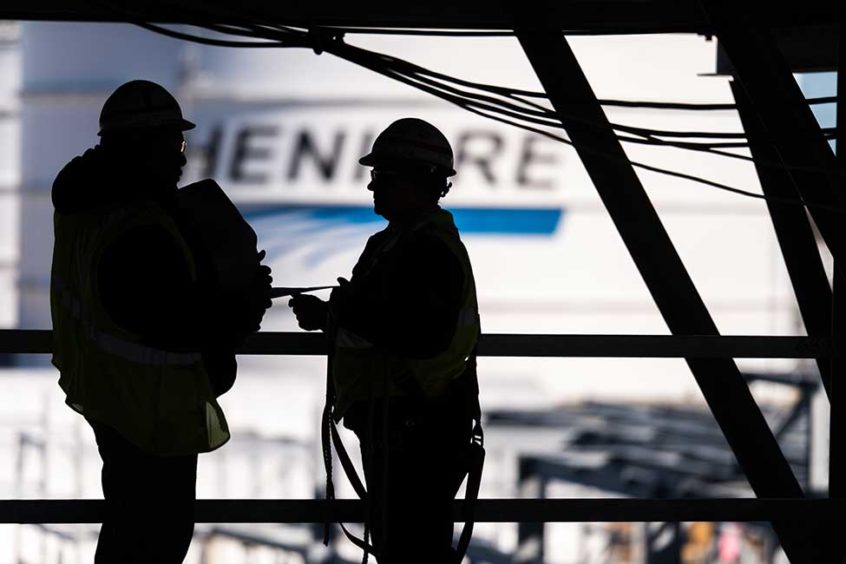
Houston-based Cheniere Energy reported soaring profits Tuesday while warning of slowing demand in Asia amid warmer winters, the rise of nuclear power and concern that the coronavirus outbreak could drag down the global economy.
The company reported that Asian LNG imports increased by just 6.8 million tons in 2019, down from the 28.5 million ton growth in 2018 as China, Japan and South Korea turn to nuclear power. Although growing LNG demand in Europe and India have helped offset declines, the prospect of slowing economic growth in China amid lingering trade tensions and the coronavirus is weighing heavily on Cheniere, the largest liquified natural gas exporter in the U.S.
“While it’s currently early to gauge the potential impact of the coronavirus on the near term market balance, decreased short term LNG demand in China is putting additional pressure on the market working to absorb the wave of incremental supply into the market over the past two years,” Cheniere Chief Executive Jack Fusco said in a conference call with analysts Tuesday.
Cheniere outlined these headwinds as it reported 2019 earnings of $648 million, a 38 percent increase from $471 million in 2018. Revenue increased 22 percent to $9.7 billion from $8 billion, and earnings rose 32 percent to $2.51 per share from $1.90. Revenue and earnings per share exceeded Wall Street expectations.
The prospect of slowing LNG growth in Asia comes as Cheniere is investing heavily in new LNG export terminals to meet forecast demand for natural gas, considered a cleaner alternative to oil and coal. Demand for natural gas worldwide is projected to grow 79 percent to 27.2 trillion cubic feet by 2030, up from 15.2 trillion cubic feet in 2018, according to Wood Mackenzie, an energy research firm.
Six LNG export terminals have opened along the Gulf Coast, creating a burgeoning market for the large volumes of natural gas being produced as a byproduct of shale oil production in the U.S., particularly in the Permian basin in West Texas and southeastern New Mexico. Oil and gas companies produce so much natural gas that much of it is being flared, or burned off.
Cheniere, which this year produced and exported its 1,000th shipment of LNG, owns two export terminals: Sabine Pass LNG in Cameron Parish, La., and Corpus Christi LNG in Texas. The company is working with general contractor Bechtel of Houston to expand its LNG production units along the Gulf Coast.
Cheniere said its third LNG production unit in Corpus Christi is about 75 percent complete and expected to be finished by June. Its sixth LNG production unit at Sabine Pass is about 44 percent complete and expected to be finished in the first half of 2023, the company said.
In November, Cheniere received approval from the Federal Energy Regulatory Commission to expand its Corpus Christi plant. The company plans to develop up to seven midscale liquefaction units at the plant with an expected LNG production capacity of 10 million tonnes per annum. Liquefaction is the process of supercooling natural gas into its liquid form, making it easier to transport by cargo ship worldwide.
Fusco, seeking to allay investor concerns of growing LNG supply amid slowing demand in Asia, said Cheniere has pre-sold more than 95 percent of its expected LNG production this year under long-term sale and purchase agreements, limiting its exposure to short-term market declines.
Cheniere warned, however, that natural gas production nationally may fall as oil producers tighten their purse strings amid low oil prices, currently hovering around $50 a barrel.
Cheniere’s stock closed Tuesday at $49.86 per share, down nearly 4 percent.
This article first appeared on the Houston Chronicle – an Energy Voice content partner. For more from the Houston Chronicle click here.
Recommended for you
